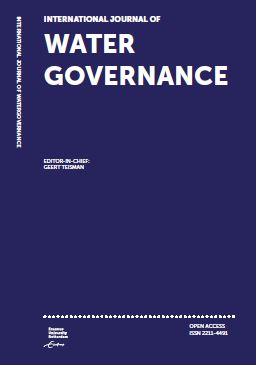Integrity and corruption risks in Water Service Delivery in Kenya and Ghana
Keywords:
water service delivery, transparency accountability, participation, corruption risksAbstract
This paper introduces a methodology to explore corruption risks in Water Service Delivery
(WSD) which is applied in case studies of three water utilities in Kenya and one in Ghana. The
methodology builds on a principal-agent framework in assessing the integrity of the relationships
between the actors involved in WSD at three levels: policy and regulation, service provision, and
water consumption. The integrity of the relationship between the actors is analyzed by a
practitioner’s approach to transparency, accountability and participation (TAP) in order to identify
corruption risk. The definitions used in this paper enhance the clarity of the methodology and
facilitates actor involvement in the analysis. Case study results show that important corruption
risks exist in WSD in Ghana and Kenya. These risks are presented in relation to corruption theory.
Downloads
Downloads
Published
How to Cite
Issue
Section
License
Copyright (c) 2016 https://creativecommons.org/licenses/by/4.0/

This work is licensed under a Creative Commons Attribution-NonCommercial 4.0 International License.


